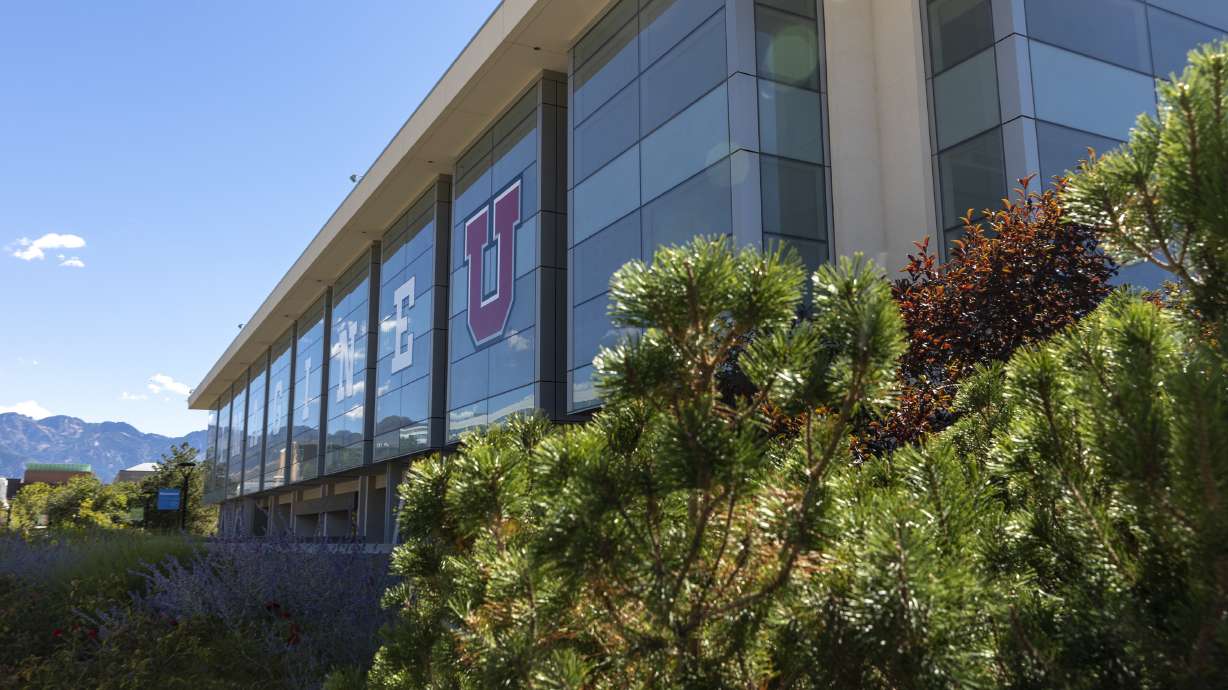Estimated read time: 3-4 minutes
This archived news story is available only for your personal, non-commercial use. Information in the story may be outdated or superseded by additional information. Reading or replaying the story in its archived form does not constitute a republication of the story.
SALT LAKE CITY — The University of Utah has a new goal of reaching net-zero greenhouse gas emissions, moving up the old target date of 2050 by a full decade.
U. President Taylor Randall first announced the adjusted goal last month, with the launch of a new climate policy center. However, the university is now ready to piece together a plan to meet the new goal of 2040.
Randall penned an open letter Monday announcing that the university is working on updating its 12-year-old Climate Change Action Plan. It is currently calling on students to fill out an online survey to help develop a plan that will address ways to reduce greenhouse gas emissions, support "cutting-edge" climate research, prepare for climate change impacts and educate "future sustainability leaders," he wrote.
A series of seven online and in-person roundtable discussion events are also planned for October and November, which will help in the feedback collection process.
The university first began commitments to address climate change in 2008 by participating in the Presidents' Climate Leadership Commitments, an agreement between universities across the nation to take steps to reduce greenhouse gas emissions and adopt climate-improving programs. Two years later, U. officials published a climate action plan that outlined short-term and long-term goals to address climate change.
The university says it has since reduced greenhouse gas emissions by 31% while more than half of its electricity is now generated by renewable sources.
However, Randall argues that it's not enough. In his letter, the university president points out that Salt Lake City just experienced its hottest summer on record for its second-straight year. At the same time, its namesake, the Great Salt Lake, fell to a record-low level again this year. Ultimately, "historically marginalized" groups are the people who feel these changes "most intensely," he added in the letter.
"Prioritizing the needs and voices of individuals and communities most impacted by climate change is a core value in our approach to this work," he wrote. "That's why our Climate Change Action Plan will provide clear, actionable steps for the university to meet its carbon neutrality and other climate change goals while centering equity in every step of the planning and implementation process."
The updated plan comes about a month after the university announced a new climate change policy center after receiving a $20 million gift from Utah philanthropists Clay and Marie Wilkes.
The Wilkes Center for Climate Science and Policy, with an estimated 75 faculty members and 350 students in its first year, aims to provide "high-impact research and make science-based recommendations to decision-makers," Peter Trapa, dean at the U.'s College of Science, said at the time.
"I can't think of a more important topic than the climate," Clay Wilkes added in August. "It's things like the inversion that comes every winter, it's the smoke-filled valleys that we've had over the last three or four years. It's things like the Great Salt Lake. Are we going to leave an atmosphere full of arsenic? We might, and if we don't change the way we're behaving, we're going to."
Salt Lake City has its own climate goals, such as "80 X 2040," an 80% reduction in community greenhouse gas emissions by 2040 based on a 2009 baseline. The city also has a goal to have "net-100% clean electricity for the community" by 2030, most of which will be from a Tooele County solar plant that is scheduled to begin operations next year.









